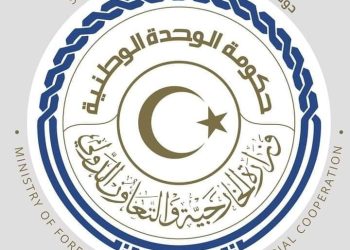By Libya Herald editor.
Tunis, 23 May 2015:
Leading Libyan businessman Husni Bey condemned the move by the Tripoli-based authorities’ of imposing an . . .[restrict]import ban on thirty-odd items through Letters of Credit as ‘’short termist, inflationary and a further expansion of the black market. It simply encourage more smuggling, smugglers and the black market will prosper most’’, he said.
As reported by Libya Herald, the Tripoli-based regime had earlier this week announced an import ban through Letters of Credit on 32 items with the stated aim of saving on Libya’s foreign currency.
”Interfering in free trade will create opportunities for criminals to smuggle and profit, the consumer and state alike will suffer. The import ban through documentary credit will create more inflation and further opportunities for smuggling and more of the ‘so labelled tribal wars’ to control smuggling routes’’, he said speaking exclusively to Libya Herald today.
With regards to the intended aim by the Tripoli authorities to save on Libya’s fast depleting foreign currency reserves Bey said that the import ban through letters of credit would fail to achieve the intended saving as ”the savings are marginal compared to the crisis in the making”.
Moreover, asked by Libya Herald if he thought that the import ban would increase the black market rate of the US dollar, currently at just over US$ 1 to LD 2.02, Bey was ‘’absolutely certain’’ that it would.
”There is only one source of foreign currency in Libya, and that is the Central Bank of Libya (CBL)’’, he explained. ‘’So even non Letter of Credit imports into Libya will be settled in foreign currency that had somehow originated from the CBL’’.
Equally, he explained, ‘’all the ban would do is encourage smugglers and black marketeers to switch to alternative non-banned items to finance imports of the banned 32 listed items”.
”Criminals and black marketeers will switch their forgeries to hundreds of other authorized ones, and generate the foreign exchange to finance the banned items. We are just expanding the market demand for more smuggled foreign exchange’’, he warned.
Bey also maintained that the choice of items listed by the import ban was arbitrary. ”Today, letters of credit are being opened by the CBL for cars all listed for the intended import into Libya. But these cars are being unloaded in the MENA region, Africa and even as far as the UAE and being sold at below cost in their new destinations’’.
”Up to 50 percent profit is still being made on repatriation of the proceeds. That is: A car costing US$ 16,000-00 (LD 21,000) is landed in some other port, it is then sold at US$ 15,000 (LD 30,000 @ 2.000 LDs/USD making a net profit of 45% on the original LDs invested”.
‘’Forged documentation is used to negotiate documentary credits and gain foreign exchange at the official rate from the CBL, and then the ill obtained cash is sold on the black market at 50 percent overnight profit’’, Bey confirmed.
To the question of why the Tripoli-based authorities had chosen this policy measure if it was doomed to fail, Bey said that ”the alternative for the Tripoli-based authorities was to introduce an even worse law, which is a return to the corrupt import licences law of the 1990’s. The alternative would have driven the US dollar to that already experienced in the 90s when the US dollar reached a peak of 3.850 LDs’’.
Bey said that the import ban decision was taken ‘’without looking at the comprehensive fundamentals of Libya’s crisis, economy, budget and finances’’.
”The total value of the listed banned items is of no more than US$ 2 bn or 7 percent of the total foreign exchange needed by the Libyan state today to balance the national budget. Libya needs a maximum US $ 30 bn per year to balance both the trade balance and the national budget without further development nor infrastructure’’, Bey explained.
”The Tripoli authorities were under pressure to do something about Libya’s fast depleting foreign currency reserves, and so they came up with this misinformed policy measure”.
”Rather than addressing the true cause of the present crises, through equitable and more efficient resource management likely to save Libya 10 billion rather than 2 billion, particularly the civil servants wage bill and subsidies – these combined represent over 75% of the budget’’.
Bey was of the view that Libya, in order to save on foreign exchange, had to ”change the subsidy to from goods to cash to reduce abuse, misuse and smuggling. Next it has two drastic alternative monetary policy solutions for its current financial crises, and both solutions are very radical’’, he admitted.
”The first solution is the devaluation of the Libyan dinar by at least 30 percent or more from its 0.52 SDR/LD pegging to 0.35 SDR/LD’’
”An alternative second option is to impose a 50-60% temporary foreign exchange crisis charge applicable and chargeable on all foreign exchange sales to companies and citizens alike”.
”Equally to promote foreign exchange repatriation, allow all imports into Libya at zero customs and tax duties. Foreign exchange holders and depositors will be incentivized to use their foreign exchange to import goods into Libya free of duties’’.
”The 50-60 percent temporary foreign exchange crisis charge would support the national budget, reduce the deficit and contain subsidized goods smuggling’’ explained Bey.
The measure to encourage importers to freely import into Libya – without resorting to CBL foreign currency – would have numerous benefits, Bey explained.
”It would encourage the repatriation of foreign currency from abroad, leading to the large inflow of foreign currency into Libya and it will encourage neighbouring countries to import through Libya reminiscent of the 1950s and 1960s’’.
”Unfortunately Libya’s imports are paid for in hard currency which are today solely generated by its hydrocarbon exports. If we are to assume that Libya is exporting 1.6 million bpd equivalent and the market at its peak at US $ 100, after deducting the share of our foreign partners, Libya’s maximum net revenue would be about US$ 40 bn’’, Bey explained.
”Today, in reality with total gas and oil production at below 600,000 bpd and prices within US$ 60 pb, at best, Libya’s net revenue is US$ 10 bn. Very much short of the US$ 30 bn Libya needs to balance its trade and budgetary payments. Therefore, with 10 bn proceeds and 30 bn payments, we need 20 bn from the foreign reserves to make up the deficit’’.
”If Libya is to continue wasting its foreign currency reserves on unproductive and non-value-added civil service wages, subsidies and government operating costs, we will exhaust our current balance of US$ 70 bn of reserves in about three years. And in much less than two years if we embark onto much needed infrastructure and development projects’’, Bey pointed out.
”None of the revenues were ever invested in efficient, productive development projects, which anyway is never government business. Nor did the Libyan government provide best education, nor did it encourage the diversification of the economy away from hydrocarbons’’.
”All Libyan governments failed to chart and plan the future with pen and paper – as the sole capital needed. They never supported the private sector with laws, nor provide top quality education, nor encourage HR development through local capacity building or vocational training, health and wellbeing etc etc’’.
”Through kitchen finance and economics – as we need no guru to prove to us that currently Libya’s civil servants wages are 24 bn, subsidies 17 bn (including child benefit, students’ grants, poverty fund bond holders) and government operating costs of 10 bn – totalling in budgeted expenditure of LD 51 bn’’.
”Divide US$ 41 bn, the ideal oil production rate and the highest price by the LD 51 bn needed for the budget – this will result in Libya’s current official exchange rate of about LD 1.30 to the dollar’’, Bey said, explaining his financial reasoning for devaluating the Libyan dinar.
| Libya’s current budget | LD billion |
| State-salaries | 24 |
| Subsidies +Grants+Benefits+Poverty Fund Bonds | 17 |
| Government Operating costs excluding wages | 10 |
| Total: | 51 |
Therefore, Bey said that ‘’ideally Libya should not be spending more than USD 15 bn on imports, which is an achievable target – half of its current 30 bn foreign trade bill. But not through interference in free trade. Our far less fortunate neighbouring countries of Egypt and Tunisia, with fewer months in foreign reserves – have not opted to interfere with free trade’’, he pointed out.
”To achieve the reduction to US$ 15 bn we need to better manage the Libyan state’s spending on state-salaries. The latest Libyan Audit Bureau report stated that 30 percent of Libya civil servants wages are duplicates. And must switch subsidies from goods to cash’’.
”The Libyan state must impose an austerity plan by either introducing the 50-60 percent crises foreign exchange charge or officially devalue the peg of the Libyan dinar to the SDR to 0.35 from 0.52”.
Bey accepted that ”prices will rise resulting in inflation until balance is achieved in the long term. This is a bitter pill either we take or will be forced on us soon’’, he explained.
”Planned, controlled inflation is better than uncontrolled downward spiralling of the country”, he added emphatically.
”The plan will a encourage the repatriation of foreign currency into Libya as it would earn foreign exchange holders with interest in Libya of up to 30 percent profit. With the potential repatriation of foreign exchange, the black market rate of foreign currency in Libya would also go lower than the official CBL loaded exchange rate”.
Moreover, with the added benefit of ”Libya’s neighbouring traders will be enticed to import through Libya. The whole move will create cross border official trade and added-value in Libya’’, he added confidently.
”In today’s reduced oil price at 60-00 USD and maximum production at 1.6 million, Libya at best could earn revenues of US$ 28 bn. The suggested 50-60 percent charge or the alternative devaluation would earn the state over LD 56 billion. The proposed alternatives would leave 45 percent of the budget earmarked for infrastructure and development spending”.
”Without a drastic solution, even if exports are back to 1.6 million bpd and at the current exchange rates, our exports could be at most US$ 28 billion, equivalent to LD 37 billion, so we will continue running with a US$ 15 billion deficit”, he pointed out.
In conclusion, Bey admitted that his policy proposal would be in the short term ”a bitter pill to swallow’’, but was still adamant that it was a much better policy option than the import ban of the 30-odd items. [/restrict]








